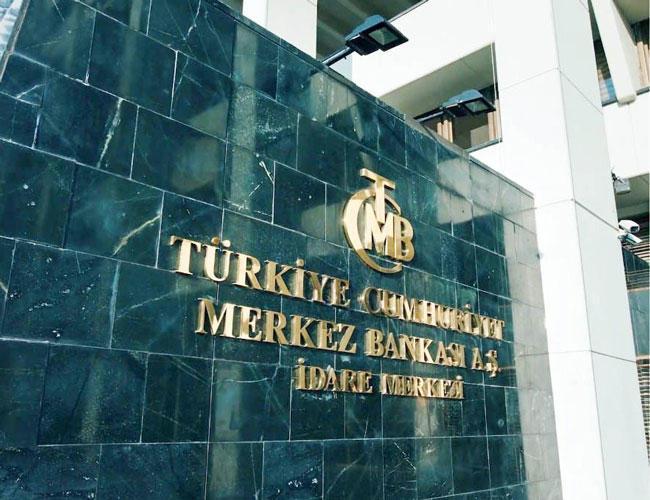
Turkey’s central bank on Jan. 30 pledged to maintain its tight monetary stance until it is convinced that inflation rate further decreases, meanwhile revising its forecasts downward.
“Increased contributions from demand conditions to disinflation, deceleration in the underlying trend of inflation, as well as the significant decrease in oil and import prices assumptions together played an important role in the downward revision in inflation forecasts for 2019,” Turkish Central Bank Governor Murat Çetinkaya said in the bank’s first quarterly inflation report in 2019.
“In this respect, an additional tightening in monetary policy could be introduced when necessary,” he added.
The bank lowered its 2019 inflation rate forecast by 0.6 percentage points to 14.6 percent, and Çetinkaya said it would aim to bring inflation down to single figures and converge with its target of 5 percent - its medium-term inflation target - in three years.
The governor said the rate will fluctuate between 11.9 percent and 17.3 percent through the end of 2019, with a 70 percent probability.
The bank also reduced its 2020 year-end inflation forecast to 8.2 percent from 9.3 percent in its last report in October.
It left its forecast for food price inflation for 2019 and 2020 unchanged at 13 percent and 10 percent respectively.
Turkey’s annual inflation reached 20.30 percent in December 2018, according to the Turkish Statistical Institute.
The bank also lowered its oil price forecast to $63 per barrel for 2019, down from $80 in its October report.
“The assumption for the average annual increase in USD-denominated import prices for 2019 is also revised downward, albeit by a much smaller margin that the oil price assumption,” Çetinkaya said.
The dollar/lira exchange rate tested 5.28 at noon, down from 5.30 as of 9.30 a.m. local time.
Piotr Matys, emerging markets forex strategist at Rabobank, said the “modest” reduction in inflation forecasts and the “reassurance” of a continued tight stance would help settle market concerns.
“This is exactly the sort of message that I think many market participants wanted to hear from the central bank,” Reuters quoted Matys as saying.
“The lira will basically continue to play an important role, and if the currency continues to appreciate or at least remain stable and inflation continues to fall, then perhaps the central bank could cut rates in Q2.”
On Jan. 16, the Turkish Central Bank kept its one-week repo rate - also known as the policy rate - constant at 24 percent.